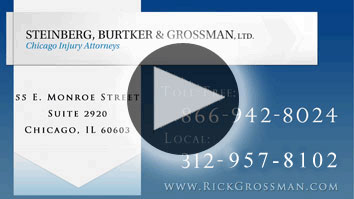As a Chicago Injury Attorney for more than 37 years I marvel at the reluctance of those members of the bar that reject the exchange of pleadings, motions, discovery and correspondence by e-mail. When I began my career, secretaries armed with carbon paper and large erasers was the only method of making multiple copies of documents. Copiers were rare and the pages printed on wet type paper that faded from the moment they were created. It forced most attorneys to carefully hand write documents or face the wrath of a secretary that had to retype everything from scratch. Bicycle messengers and law clerks hand delivered these documents to opponents and the clerk of the court.
In the mid 1980's the fax machine was invented which permitted the transfer of documents over telephone line resulting in a sometimes illegible piece of paper. Serious business still required clean documents on engraved stationary for which the fax machine was useless.
Over the past 4 to 10 years the e-mail has become an addictive source of fast communication for both social and business purposes. Thanks to the invention of PDF files and the high speed scanner, long documents, photographs and other images can be attached to an e-mail resulting in a digital copy as perfect as the original.
In cases involving multiple parties and their attorneys scheduling a deposition or court hearing required endless telephone calls, messages followed by mailed correspondence confirming a date and time. The obvious lack of efficiency may have been acceptable to attorneys paid on an hourly basis but not for personal injury, medical malpractice attorneys paid pursuant to a contingent fee arrangement. For those of us looking to do more work in less time, e-mail is the only current solution. I have been a strong advocate of the use of e-mail which saves paper, postage, secretarially time. Although not currently sanctioned by the Illinois State Courts most of my opponents have been more than willing to stipulate to the use of e-mail and file attachments for all purposes.
The Illinois Supreme Court has finally recognized the benefit of e-mail over mailing or facsimile amending Rule 11 as follows:
Effective Jan. 1, 2013 attorneys and parties involved in civil cases in circuit courts statewide must include an email address for service of documents on appearances and on all pleadings filed in court. The amendments to Supreme Court Rule 11, announced in October, make the following changes:
Rule 11. Manner of Serving Papers Documents Other Than Process and Complaint on Parties Not in Default in the Trial and Reviewing Courts
(a) On Whom Made. If a party is represented by an attorney of record, service shall be made upon the attorney. Otherwise service shall be made upon the party.
(b) Method. Papers Documents shall be served as follows:
...
(6) by transmitting them via e-mail to the designated e-mail address of record for the attorney or party; or
(7) by transmission through a service provider that provides an electronic in-box for those parties registered to use the service.
(d) E-Mail Address. A party or an attorney must include on the appearance and on all pleadings filed in court an e-mail address for service of documents.
In addition to striking the word "papers" and replacing it with "documents," the amended rule permits litigants to serve those documents using the designated email address of record for the attorney or party. And - importantly - it requires lawyers to receive documents served by email as valid service.
The rule amendment expressly allows transmission through a service that "provides an electronic in-box" for those registered to use it, a change that should help avoid the file-size limits and other problems inherent in sending email with large attachments. Lawyers will be able to view pleadings, motions and correspondence wherever they are without the need of a dedicated fax machine. The efficiency of the attorney improves dramatically and the needless use of paper avoided.
I am truly excited that what formerly required the agreement of all attorneys will now become a routine practice for all litigation. I commend the Illinois Supreme Court and its E-Business Committee for taking this necessary step to permit the exchange of all legal documents by E-Mail.




















